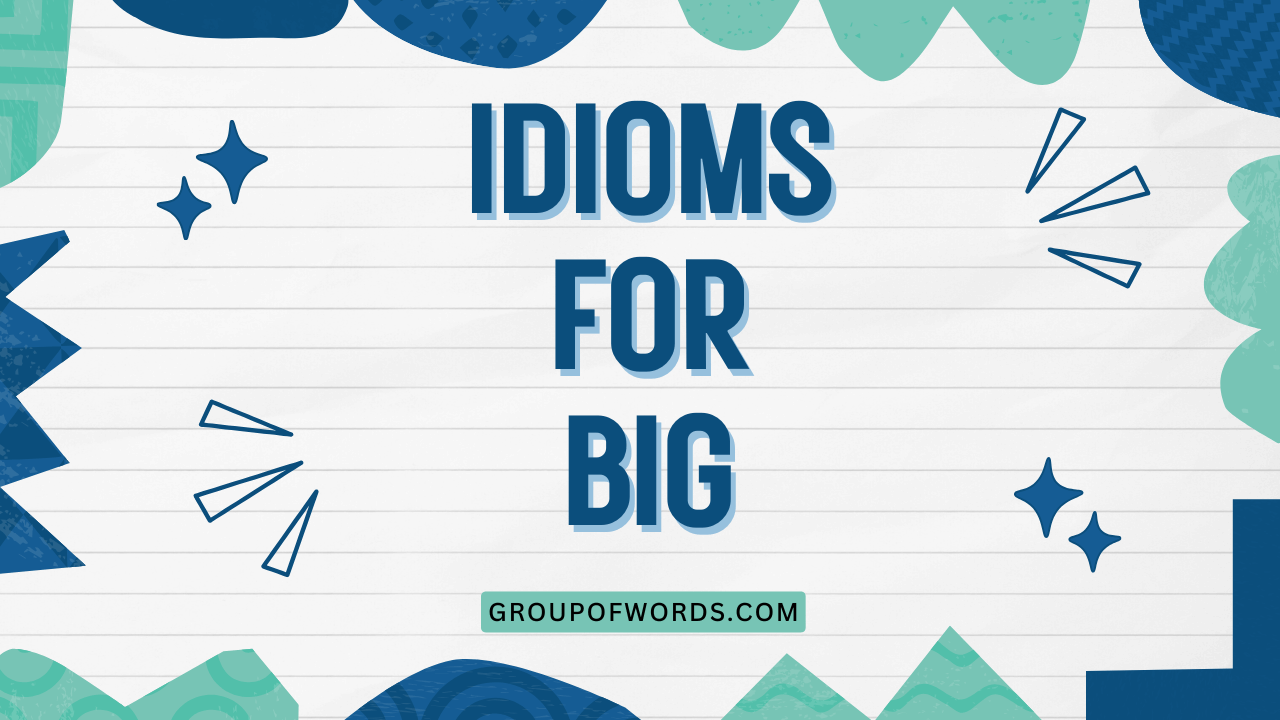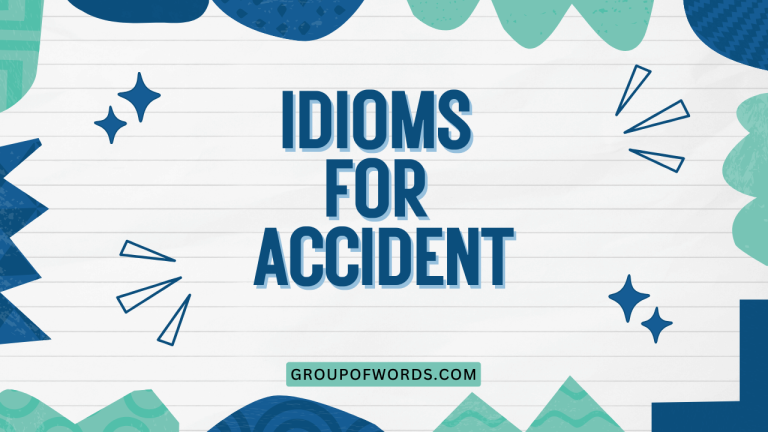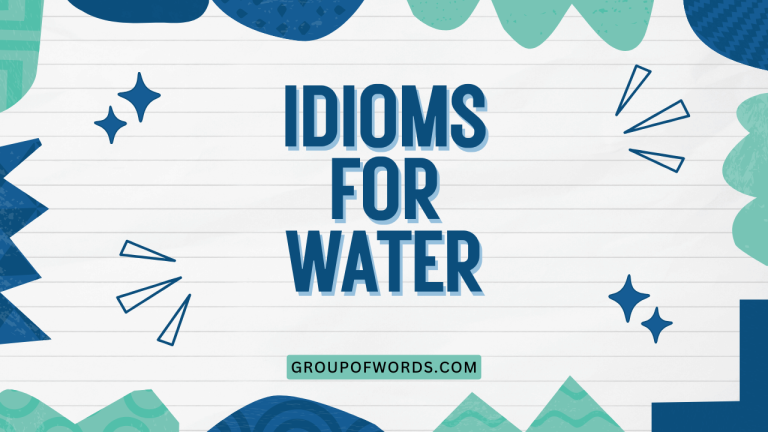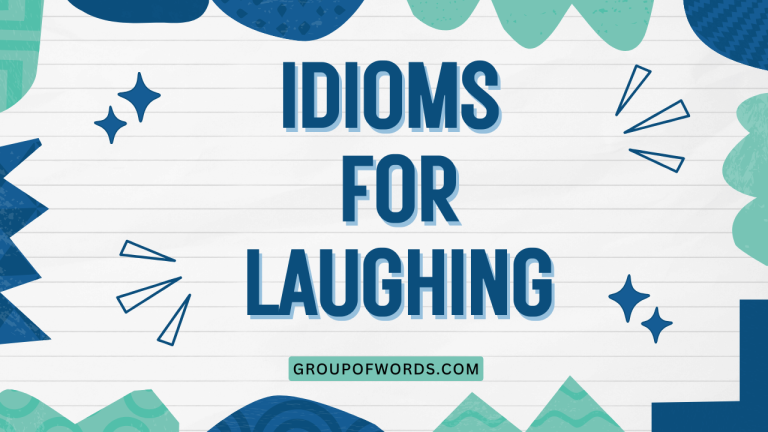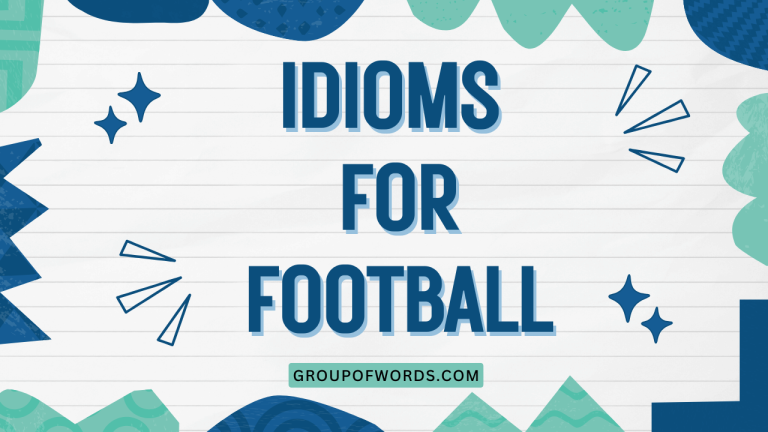Idioms for “Big”: Expanding Your English Vocabulary
Idioms add color and depth to the English language, allowing speakers to express themselves in creative and nuanced ways. When describing something as “big,” there’s a plethora of idioms that go beyond simple adjectives.
Mastering these idioms not only enriches your vocabulary but also enhances your understanding of English in both formal and informal contexts. This article will explore various idioms related to “big,” providing definitions, examples, usage rules, and practice exercises to help you confidently incorporate them into your everyday speech and writing.
Whether you’re an English language learner or a native speaker looking to refine your communication skills, this guide will provide valuable insights into the fascinating world of idioms.
Table of Contents
- Definition of Idioms for “Big”
- Structural Breakdown of Idioms
- Types and Categories of Idioms for “Big”
- Examples of Idioms for “Big”
- Usage Rules for Idioms
- Common Mistakes When Using Idioms
- Practice Exercises
- Advanced Topics in Idiom Usage
- Frequently Asked Questions
- Conclusion
Definition of Idioms for “Big”
An idiom is a phrase or expression whose meaning cannot be understood from the literal meanings of its individual words. Instead, idioms function as a unit with a figurative or symbolic meaning.
Idioms related to the concept of “big” convey ideas of size, magnitude, importance, influence, or impact. They add vividness and expressiveness to language, allowing speakers to communicate complex notions in a concise and memorable way.
Understanding idioms is crucial for mastering English, as they are frequently used in both spoken and written communication, and misinterpreting them can lead to misunderstandings. Idioms can be classified based on their function, such as descriptive (describing size), emphatic (emphasizing importance), or figurative (using metaphors to convey meaning).
Structural Breakdown of Idioms
Idioms are structurally diverse, varying from simple phrases to complex clauses. Some common structures include:
- Prepositional Phrases: A big deal, a major plus
- Verb + Noun Combinations: Carry weight, make waves
- Adjective + Noun Combinations: Big cheese, major league
- Phrasal Verbs: (While not always idioms themselves, they can contribute to idiomatic expressions) Blow up (in the sense of becoming a big deal)
- Similes and Metaphors: As big as a house, a whale of a time
The key characteristic is that the meaning is not derivable from the individual words. For example, “a big deal” doesn’t literally refer to a large transaction; it signifies something important or significant.
Understanding the structure can sometimes provide clues, but memorization and contextual understanding are essential for mastering idioms.
Types and Categories of Idioms for “Big”
Idioms Describing Size and Magnitude
These idioms directly relate to physical or abstract size. They emphasize the scale or extent of something.
Idioms Describing Importance and Significance
These idioms highlight the importance, relevance, or value of something. They often imply that something has substantial consequences or merits attention.
Idioms Describing Influence and Power
These idioms focus on the ability to affect or control something. They often relate to authority, dominance, or the capacity to bring about change.
Idioms Describing Impact and Effect
These idioms emphasize the consequences or results of an action or event. They highlight the extent to which something has made a difference or caused a change.
Examples of Idioms for “Big”
The following sections provide examples of idioms related to “big,” categorized by their primary meaning.
Size and Magnitude Examples
This table explores idioms emphasizing the scale or extent of something, whether physical or abstract.
| Idiom | Meaning | Example Sentence |
|---|---|---|
| As big as a house | Extremely large in size. | That SUV is as big as a house! |
| A whale of a | Very large or impressive (often used with “time”). | We had a whale of a time at the party. |
| Larger than life | Having an exaggerated or flamboyant personality; also, very big. | The actor’s larger-than-life persona captivated the audience. |
| In a big way | To a great extent; significantly. | The company invested in renewable energy in a big way. |
| A big chunk | A significant portion or amount. | He spent a big chunk of his savings on the new car. |
| Big time | To a great degree; very much. | She wants to make it big time in Hollywood. |
| Big box | A very large retail store. | We bought the television at a big box store. |
| Big ticket | Expensive or high-value. | Houses are considered big ticket items. |
| Big league | The highest level of a profession or activity. | He finally made it to the big leagues in baseball. |
| Big brother | A powerful organization or government that monitors people’s activities. | Some people fear that technology is turning into Big Brother. |
| Mountains of | A very large amount of something. | I have mountains of paperwork to complete this week. |
| A world of | A large amount or a great difference. | This new phone is a world of difference compared to my old one. |
| A vast amount | A very large quantity. | They required a vast amount of resources to complete the project. |
| A great deal | A considerable amount or quantity. | She spent a great deal of time practicing the piano. |
| In spades | In large amounts or to a high degree. | He has talent in spades, especially in music. |
| By leaps and bounds | Rapidly and in great amounts. | The company’s profits grew by leaps and bounds this year. |
| A king’s ransom | A very large sum of money. | That painting is worth a king’s ransom. |
| Tons of | A large quantity or amount. | I have tons of work to do before the deadline. |
| Heaps of | A large amount of something. | She has heaps of experience in the field. |
| A plethora of | A large or excessive amount of something. | There’s a plethora of options to choose from. |
| A multitude of | A large number of things or people. | A multitude of factors contributed to the problem. |
| Oceans of | A very large amount or quantity. | He dedicated oceans of time to perfecting his craft. |
| A flood of | A large quantity of something arriving at the same time. | We received a flood of applications for the job. |
| A sea of | A large expanse or quantity of something. | There was a sea of faces in the audience. |
Importance and Significance Examples
This table showcases idioms that emphasize the importance, relevance, or value of something.
| Idiom | Meaning | Example Sentence |
|---|---|---|
| A big deal | Something important or significant. | Getting into that university is a big deal for her. |
| Of great import | Of significant importance. | The president’s visit is of great import to the negotiations. |
| Matter a great deal | To be very important. | His family matters a great deal to him. |
| A major plus | A significant advantage or benefit. | The flexible hours are a major plus for working parents. |
| Carries weight | To have influence or importance. | His opinion carries a lot of weight in the company. |
| A major league | Of the highest level of quality or importance. | She’s a major league talent in the music industry. |
| A big fish | An important or influential person. | He’s a big fish in the world of finance. |
| The main thing | The most important thing. | The main thing is that everyone is safe. |
| The be-all and end-all | The most important thing; the ultimate goal. | Success isn’t the be-all and end-all of life. |
| Front and center | Of utmost importance or in a prominent position. | Customer satisfaction is front and center in our business strategy. |
| A key factor | A crucial element that influences an outcome. | Hard work is a key factor in achieving success. |
| A critical component | An essential part of something. | Honest communication is a critical component of a healthy relationship. |
| Of the essence | Absolutely necessary or vital. | Time is of the essence in this emergency situation. |
| A cornerstone of | An essential foundation or basis. | Trust is the cornerstone of any successful partnership. |
| Vital to | Essential or necessary for something. | Exercise is vital to maintaining good health. |
| Paramount importance | Of the highest importance. | Safety is of paramount importance on this construction site. |
| Crucial role | A significant and necessary part in a process or event. | Education plays a crucial role in societal development. |
| Integral part | An essential component that is necessary for completeness. | Teamwork is an integral part of the company’s success. |
| Fundamental aspect | A basic and essential element. | Respect for others is a fundamental aspect of civilized society. |
| Primary concern | The most important thing to be worried about. | His primary concern was the safety of his family. |
| Foremost consideration | The most important thing to think about. | The patient’s well-being is the foremost consideration. |
| Chief priority | The most important goal or task. | Completing the project on time is the chief priority. |
| A matter of life and death | Extremely important; a situation where someone could die. | This is a matter of life and death; we need to act quickly. |
| All-important | Extremely important; crucial. | The all-important meeting is scheduled for next week. |
Influence and Power Examples
This table illustrates idioms that emphasize the ability to affect or control something.
| Idiom | Meaning | Example Sentence |
|---|---|---|
| Big cheese | An important and influential person. | He’s the big cheese at the advertising agency. |
| Call the shots | To be in charge; to make the decisions. | As the CEO, she calls the shots in the company. |
| Carry weight | To have influence or importance. | His endorsements carry a lot of weight with voters. |
| Have a big stick | To have power or influence. | The company has a big stick because of its market share. |
| Pull strings | To use influence to get something done. | He had to pull some strings to get the appointment. |
| Make waves | To cause a disturbance or create a significant impact. | Her innovative ideas are making waves in the industry. |
| Have the upper hand | To have an advantage over someone. | In the negotiation, they have the upper hand. |
| Hold sway | To have influence or power over something. | Popular opinion can hold sway over political decisions. |
| Rule the roost | To be in charge; to be the boss. | She rules the roost in her household. |
| Run the show | To be in control of an organization or event. | He runs the show at the local theater. |
| The driving force | The person or thing that motivates or directs something. | Innovation is the driving force behind the company’s success. |
| A leading light | An influential or prominent person. | She is a leading light in the field of environmental science. |
| A major player | An important person or organization in a particular field. | The company is a major player in the tech industry. |
| A power broker | A person who exerts influence, especially in politics. | He is known as a power broker in the local government. |
| In the driver’s seat | In control of a situation or organization. | She is now in the driver’s seat after being promoted to manager. |
| At the helm | In a position of leadership or control. | He is at the helm of the company during a period of growth. |
| Command respect | To be admired and obeyed. | The general commands respect from his troops. |
| Call the tune | To be in a position to make the important decisions. | The bank calls the tune because they are providing the loan. |
| Set the agenda | To determine what issues are important and should be addressed. | The organization aims to set the agenda for environmental policy. |
| Have a say | To have the right to express an opinion or influence a decision. | Everyone should have a say in how the project is managed. |
| Wield influence | To have and use power to affect people or events. | He wields significant influence in the political arena. |
| Exert control | To use power to direct or manage something. | The government exerts control over the economy through regulations. |
| Hold the reins | To be in control of an organization or situation. | She holds the reins of the family business. |
| Wear the trousers | To be the dominant partner in a relationship. | In their marriage, she wears the trousers. |
Impact and Effect Examples
This table provides examples of idioms that emphasize the consequences or results of an action or event.
| Idiom | Meaning | Example Sentence |
|---|---|---|
| A big impact | A significant effect or influence. | The new policy had a big impact on employee morale. |
| Make a difference | To have a significant effect or influence. | Volunteering can make a difference in the lives of others. |
| Leave a mark | To have a lasting effect or influence. | Her contributions left a mark on the company’s culture. |
| Change the game | To alter the way something is done; to innovate significantly. | The new technology is a game changer for the industry. |
| Move the needle | To make a noticeable difference. | The marketing campaign helped move the needle on sales. |
| Have a ripple effect | To cause a series of consequences that spread outwards. | The factory closure had a ripple effect on the local economy. |
| Turn the tide | To reverse a trend or change the course of events. | The new strategy helped turn the tide for the struggling company. |
| Rock the boat | To cause trouble or disrupt a stable situation. | He didn’t want to rock the boat by disagreeing with his boss. |
| Shake things up | To cause significant changes or disruptions. | The new CEO is expected to shake things up at the company. |
| Leave its footprint | To have a lasting impact or influence. | The environmental disaster left its footprint on the ecosystem. |
| Set the world on fire | To achieve great success or make a big impact. | The young artist is expected to set the world on fire with his talent. |
| Have far-reaching consequences | To have effects that extend widely and deeply. | The decision to cut funding has far-reaching consequences. |
| Alter the landscape | To significantly change the way something looks or operates. | The internet has altered the landscape of modern communication. |
| Reshape the future | To change the course of events in a significant way. | Technological advancements have the potential to reshape the future. |
| Make history | To do something so important that it is recorded in history. | The team made history by winning the championship. |
| Have a profound effect | To have a deep and significant impact. | The tragedy had a profound effect on the community. |
| Resonate deeply | To have a strong and lasting impact. | The speaker’s words resonated deeply with the audience. |
| Leave an indelible impression | To make a lasting and unforgettable impact. | The performance left an indelible impression on everyone who saw it. |
| Turn the tables | To reverse a situation and gain an advantage. | The underdog team turned the tables and won the game. |
| Shift the paradigm | To change a fundamental set of beliefs or assumptions. | The new research shifted the paradigm in the scientific community. |
| Have a lasting legacy | To leave a significant and enduring impact. | His work has a lasting legacy in the field of medicine. |
| Change the rules of the game | To fundamentally alter the established practices or norms. | The new regulations changed the rules of the game for businesses. |
| Have a substantial influence | To have a significant impact on something or someone. | Her mentor had a substantial influence on her career. |
| Create a stir | To cause excitement, controversy, or interest. | The announcement created a stir among the employees. |
| Make an impact | To influence strongly. | Her speech made a huge impact on the audience. |
Usage Rules for Idioms
Using idioms correctly involves understanding their specific meanings and contexts. Here are some general rules:
- Context is Key: Idioms should be used in appropriate situations. Consider the formality of the setting and the audience.
- Word Order: The word order in idioms is generally fixed. Changing the order can alter the meaning or make the phrase nonsensical.
- Tense and Number: Idioms can be adapted to different tenses and numbers, but care should be taken to maintain grammatical correctness. For example, “He is a big deal” can become “He was a big deal” or “They are a big deal.”
- Overuse: Avoid overuse of idioms, as it can make your language sound contrived or unnatural.
- Audience Awareness: Be mindful of your audience’s familiarity with idioms. Using obscure idioms can confuse listeners or readers.
It’s also important to note that some idioms may have regional variations or slightly different connotations depending on the cultural context.
Common Mistakes When Using Idioms
Here are some common errors to avoid when using idioms:
| Incorrect | Correct | Explanation |
|---|---|---|
| She is a big business. | She is a big deal. | “Big business” refers to a large company, while “big deal” refers to an important person or event. |
| He made a big different. | He made a big difference. | The correct idiom is “make a big difference,” not “different.” |
| The cat is out from the bag. | The cat is out of the bag. | The correct preposition is “of,” not “from.” |
| It’s raining dogs and cats. | It’s raining cats and dogs. | The correct order is “cats and dogs.” |
| She is pulling my leg. | He is pulling my leg. | The idiom is about deceiving someone in a playful way. |
| He is the big cheese in his family. | He is the big cheese at work. | “Big cheese” is best used in professional settings. |
| The idea has a ripple effect in the water. | The idea has a ripple effect on the community. | Ripple effect is usually abstract, not literal. |
Practice Exercises
Test your understanding of idioms with these practice exercises.
| Question | Answer |
|---|---|
| 1. The company’s new CEO is expected to ______ and bring fresh ideas. | shake things up |
| 2. Getting into that prestigious university is a ______ for any student. | big deal |
| 3. He is the ______ in the advertising agency, making all the important decisions. | big cheese |
| 4. Her contributions to the project ______ on the team’s success. | left a mark |
| 5. The new technology promises to ______ in the industry. | change the game |
| 6. Volunteering at the local shelter can ______ in the lives of animals. | make a difference |
| 7. The closure of the factory had a ______ on the town’s economy. | ripple effect |
| 8. He had to ______ to get his son an internship at the company. | pull strings |
| 9. Her opinions ______ with the voters because of her experience. | carry weight |
| 10. After years of decline, the company managed to ______ with its new strategy. | turn the tide |
| Question | Answer |
|---|---|
| 1. The politician’s speech ______ with the audience, leading to increased support. | resonated deeply |
| 2. The museum exhibit ______ on everyone who visited. | left an indelible impression |
| 3. The underdog team ______ in the final minutes of the game. | turned the tables |
| 4. The scientific breakthrough ______ in the field of medicine. | shifted the paradigm |
| 5. The leader’s actions are expected to ______ for generations to come. | have a lasting legacy |
| 6. The new regulation is likely to ______ for businesses. | change the rules of the game |
| 7. Her mentor ______ on her career path. | had a substantial influence |
| 8. The announcement of the merger ______ among the staff. | created a stir |
| 9. His actions ______ on the future of the company. | made an impact |
| 10. The company invested in renewable energy ______. | in a big way |
| Question | Answer |
|---|---|
| 1. I have ______ of work to do before the deadline. | tons |
| 2. She has ______ of experience in the field. | heaps |
| 3. There’s a ______ of options to choose from. | plethora |
| 4. A ______ of factors contributed to the problem. | multitude |
| 5. He dedicated ______ of time to perfecting his craft. | oceans |
| 6. We received a ______ of applications for the job. | flood |
| 7. There was a ______ of faces in the audience. | sea |
| 8. That SUV is ______. | as big as a house |
| 9. We had ______ at the party. | a whale of a time |
| 10. The actor’s ______ persona captivated the audience. | larger-than-life |
Advanced Topics in Idiom Usage
For advanced learners, consider exploring these topics:
- Idiomatic Variation: Some idioms have regional or dialectal variations. Understanding these nuances can improve communication.
- Historical Origins: Researching the origins of idioms can provide deeper insights into their meanings and usage.
- Figurative Language: Analyze how idioms employ metaphors, similes, and other figures of speech to convey meaning.
- Translation Challenges: Explore the challenges of translating idioms into other languages, as direct translations often fail to capture the intended meaning.
Frequently Asked Questions
- What is the difference between an idiom and a proverb?
An idiom is a phrase whose meaning is not predictable from the usual meanings of its constituent elements. A proverb, on the other hand, is a short, well-known saying that expresses a general truth or piece of advice. For example, “It’s raining cats and dogs” is an idiom, while “Look before you leap” is a proverb. Proverbs offer wisdom or guidance, while idioms primarily serve to add color and nuance to language.
- How can I improve my understanding of idioms?
Immerse yourself in the English language through reading, listening, and speaking. Pay attention to how native speakers use idioms in different contexts. Keep a notebook of new idioms you encounter and look up their meanings. Practice using idioms in your own speech and writing. The more you expose yourself to idioms, the better you will understand them.
- Are idioms universal across all English-speaking countries?
No, idioms can vary significantly between different English-speaking countries and regions. Some idioms are widely understood, while others are specific to certain locales. For example, an idiom commonly used in the United States may not be familiar to someone from the United Kingdom or Australia. Be mindful of your audience when using idioms and consider whether they are likely to be understood.
- Is it okay to mix idioms?
Generally, mixing idioms is not recommended, as it can lead to confusion and nonsensical expressions. For example, combining “beat around the bush” and “get to the point” into “beat around the point” would be incorrect. However, some creative writers may intentionally mix idioms for humorous or stylistic effect. As a learner, it’s best to stick to the standard forms of idioms.
- How do I know when to use an idiom?
Use idioms when you want to add color, expressiveness, or nuance to your language. Consider the context, audience, and formality of the situation. Idioms are often appropriate in informal settings, but may be less suitable in formal or academic writing. When in doubt, err on the side of caution and use more direct language.
- Can I use idioms in academic writing?
The use of idioms in academic writing is generally discouraged, as it can be perceived as informal or imprecise. Academic writing typically requires clear, direct, and objective language. However, there may be exceptions depending on the field of study and the specific context. Consult your instructor or style guide for guidance.
- What is the best way to learn new idioms?
The best way to learn new idioms is through consistent exposure and active practice. Read books, articles, and blogs in English. Watch movies and TV shows. Listen to podcasts and conversations. Pay attention to how native speakers use idioms in different situations. Keep a vocabulary journal and record new idioms you encounter. Use flashcards or other memory aids to help you remember the meanings of idioms. Practice using idioms in your own speech and writing.
- Are there any online resources for learning idioms?
Yes, there are many online resources available for learning idioms. Websites like Merriam-Webster, Oxford Learner’s Dictionaries, and The Free Dictionary offer definitions and examples of idioms. There are also numerous websites and apps specifically dedicated to teaching idioms, such as Idiom Land and EnglishClub. These resources can provide valuable support for your idiom learning journey.
Conclusion
Mastering idioms related to “big” can significantly enhance your English vocabulary and communication skills. By understanding the different types of idioms, their structural elements, and usage rules, you can confidently incorporate them into your speech and writing.
Remember to pay attention to context, avoid common mistakes, and practice consistently. With dedication and effort, you can unlock the expressive power of idioms and communicate more effectively in English.
Embracing idioms will make your language richer, more engaging, and more nuanced, allowing you to connect with native speakers on a deeper level.
